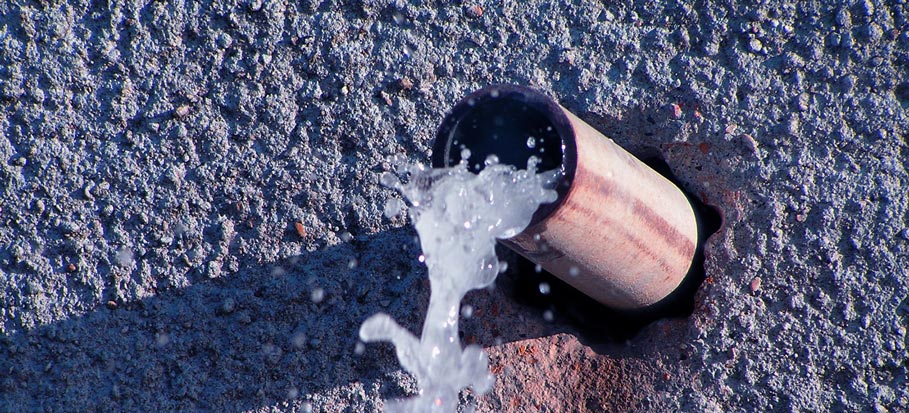Just how do you feel in regards to Locating water leaks?

Early discovery of leaking water lines can reduce a potential catastrophe. Aside from conserving you money, it will certainly lessen the worry and frustration. The moment you discover a leak, calling your plumber for repair services is the most effective option. Some small water leaks may not be visible. If you can not discover it with your naked eyes, right here are some hacks that assist.
1. Check Out the Water Meter
Every home has a water meter. Checking it is a surefire manner in which helps you find leakages. For starters, shut off all the water sources. Make sure no person will purge, make use of the faucet, shower, run the washing equipment or dish washer. From there, most likely to the meter as well as watch if it will certainly change. Given that nobody is utilizing it, there need to be no motions. That shows a fast-moving leak if it moves. If you find no adjustments, wait a hr or 2 and also inspect back once again. This implies you may have a slow leakage that might even be underground.
2. Check Water Usage
If you find abrupt modifications, despite your intake being the exact same, it indicates that you have leakages in your plumbing system. A sudden spike in your costs shows a fast-moving leakage.
A stable increase every month, also with the exact same habits, reveals you have a sluggish leak that's also gradually escalating. Call a plumber to extensively inspect your residential or commercial property, especially if you feel a warm area on your floor with piping underneath.
3. Do a Food Coloring Test
When it comes to water intake, 30% comes from bathrooms. If the color in some way infiltrates your bowl during that time without flushing, there's a leakage between the container and also bowl.
4. Asses Outside Lines
Do not neglect to inspect your outside water lines too. Should water permeate out of the link, you have a loose rubber gasket. One small leak can waste bunches of water and surge your water bill.
5. Examine and Analyze the Scenario
Homeowners must make it a habit to inspect under the sink counters and also also inside closets for any type of bad odor or mold development. These two warnings suggest a leak so punctual attention is called for. Doing regular inspections, also bi-annually, can conserve you from a significant issue.
A lot more notably, if you know your residence is currently old, keep a watchful eye on your heating systems, hoses, pipelines etc. Look for discolorations and also damaging as a lot of pipes and devices have a life expectancy. They will certainly also normally deteriorate because of deterioration. If you suspect leaking water lines in your plumbing system, don't wait on it to rise. Call a professional plumber immediately so you don't wind up with an awful mess in your house.
Early detection of dripping water lines can minimize a potential catastrophe. Some small water leakages might not be noticeable. Inspecting it is a surefire way that assists you find leakages. One tiny leak can lose bunches of water and surge your water expense.
If you presume leaking water lines in your plumbing system, do not wait for it to intensify.
How to Know If Your Home Has a Hidden Leak
Water Meter Reveals Inexplicable Water Usage
If you’d like to test whether or not there’s a leak somewhere in your home, you can do this using your water meter. Here is how to conduct the test:
Don’t use any water in your home for at least 30 minutes; this also means not turning on faucets or water-using appliances.
Go outside, and check your water meter for activity.
If your water meter shows that there was activity, even though no one was using any water, this proves that there is a leak in your home.Visible Mold or Mildew Growth
Leaks behind walls create moist, dark environments that allow mold and mildew to grow and thrive. Eventually, you might see mold growth forming on the wall closest to a hidden leak.
If mold is growing in an area that receives a high amount of moisture, such as a bathroom, it may simply be an indication that better ventilation is needed. However, if you see mold growth on a wall or the ceiling in an area where you would not expect, you probably have a hidden leak.
Musty, Mildew Odor
Sometimes you might not be able to see the mold or mildew that is growing as a result of a leak. However, the smell can give the problem away just as easily. If you catch a whiff of something musty, there’s a good chance that old water is collecting somewhere in your home that you can’t see.
Stained/Warped Walls, Ceilings, or Floors
When your home soaks up water, a variety of red flags can become visible, including ceiling stains, bubbling drywall, warped walls, and sagging floors. While these issues can be caused by excess humidity, they can also be signs that a pipe or plumbing connection has started leaking behind your walls.
Inexplicably High Water Bill
After a while, you get a general sense for what your water bill should be. If you own a pool or sprinkler system, your bill will tend to be higher during summer. However, if you receive a water bill that seems especially high, and you can’t figure out what caused it, then you may have a hidden leak somewhere that’s increasing your bill.
https://www.plumbingjoint.com/blog/2019/july/how-to-know-if-your-home-has-a-hidden-leak/

As an enthusiastic reader about Detecting hidden plumbing leaks, I was thinking sharing that piece of content was worth the trouble. Those who liked our blog entry please remember to pass it around. I am grateful for your time. Come back soon.